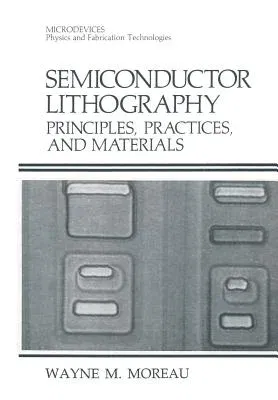Wayne M Moreau
(Author)Semiconductor Lithography: Principles, Practices, and Materials (Softcover Reprint of the Original 1st 1988)Paperback - Softcover Reprint of the Original 1st 1988, 22 February 2012

Qty
1
Turbo
Ships in 2 - 3 days
In Stock
Free Delivery
Cash on Delivery
15 Days
Free Returns
Secure Checkout
Part of Series
Microdevices
Print Length
952 pages
Language
English
Publisher
Springer
Date Published
22 Feb 2012
ISBN-10
1461282284
ISBN-13
9781461282280
Popular Books
Ships in
Description
Product Details
Author:
Book Edition:
Softcover Reprint of the Original 1st 1988
Book Format:
Paperback
Country of Origin:
NL
Date Published:
22 February 2012
Dimensions:
24.41 x
16.99 x
4.78 cm
ISBN-10:
1461282284
ISBN-13:
9781461282280
Language:
English
Location:
New York, NY
Pages:
952
Publisher:
Series:
Weight:
1483.25 gm













